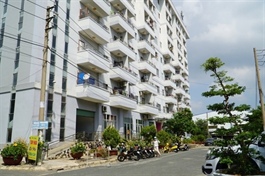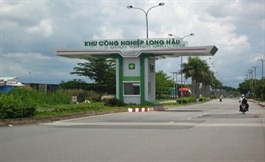Experts consider major changes to land valuation
Experts consider major changes to land valuation
Drafts to amend and supplement Decree No.44/2014/ND-CP on land prices and Circular No.36/2014/TT- BTNMT on land valuation were discussed at a VIR seminar on the issue on July 27.

Nguyen Chi Thanh - Standing vice chairman, Vietnam Association of Realtors
Among the different methods that are being used now, including the land price coefficient methodology, residual methodology, direct comparison methodology, and income methodology, we find that the residual methodology has been among the most popular methods, here and also globally. This is because residual methodology shows the effectiveness of the project.
Another problem is that we are amending the law so that it will determine land value according to the market price, meaning the price will go up or down, depending on the market. All the aforementioned methodologies, excluding the residual, will be convenience for the state management agency as land value determined by those methods will consistently trend upwards. This will further increase land and house prices at a time when prices are already too high compared to the average income of Vietnamese people. Land valuation should follow the market price when the buyer is the one who decides what the market price is. Sellers often expect to sell at a very high price, but if the market does not accept it, they cannot sell.
Therefore, I propose not to take out this method from the amended Law on Land for lack of a more optimal method.
Dr Tran Dinh Thien - Former director, Vietnam Economics Institute
Depending on the specific situation, we can decide which methodologies can be applied for land value determination in line with the market price. However, we have not yet successfully determined what the market price is. Land values in Vietnam are extremely complicated and cause instability in people's lives. So, why are we removing the residual methodology and keeping the other three methods? Land prices in Vietnam tend to increase and decrease cyclically and greatly influence economic development. Regardless of which methodologies are being used to determine land prices, we must determine for both the present and future time, especially for urban areas and industrial zones.
Vietnam is a transition economy with high rates of growth, industrialisation, and urbanisation, and this drives real estate speculation activities.
Land taxes play an important role. In an emerging economy where land prices may climb and climb, we must calculate how to approach land tax to limit speculation, regulate the land market, and combat tax fraud.
The residual methodology should not be abandoned, and, in fact, the central and large trade areas should be applying this method of land value calculation in particular.
Le Hoang Chau - Chairman, Ho Chi Minh City Real Estate Association (HoREA)
HoREA welcomes the regulation that will apply the 'land price coefficient methodology' to determine specific land prices to calculate land use fees and land rents for real estate projects, commercial buildings, and urban areas.
However, HoREA has found out that the regulation stipulates that the area of land to be valued must have a price of "less than VND200 billion" ($8.44 million), so it will not include the many real estate projects that are above this figure. Many projects are now valued at thousands of billions VND in big cities like Hanoi, Ho Chi Minh City, Danang, Nha Trang Haiphong, and many others.
Therefore, HoREA proposes to apply the 'land price coefficient methodology' for all land plots, regardless of their value. This will contribute to ensuring transparency, fairness, a heathy revenue for the state budget, and much more.
Professor Vu Sy Cuong - Academy of Finance
Currently, 87.5 per cent of cases seeking valuation are using the residual methodology, so if we replace that now, the cost will be huge, so this should be taken into further consideration when amending the law. When we change methodology, we must re-arrange a series of necessary activities, such as resetting the system for a different way of collecting data and re-training staff to meet the requirements of the new policy.
Concerns remain that the residual methodology is fine when the market is making a profit, but not so helpful when it's losing money. We need to take into account both of these situations to properly handle taxation.
When making policies, we must also consider the principle of compliance and the feasibility of the policy. If land valuation is decentralised to the district level, it will be very difficult as there is a large gap between district-level capacity and central-level capacity. Therefore, it will be necessary to have detailed regulations and guidelines for specific situations for lower-level officials to apply, or bottlenecks will form.
We should apply economic principles rather than criminalise violations, if any, and use financial tools such as sanctions and taxes to regulate the market.























